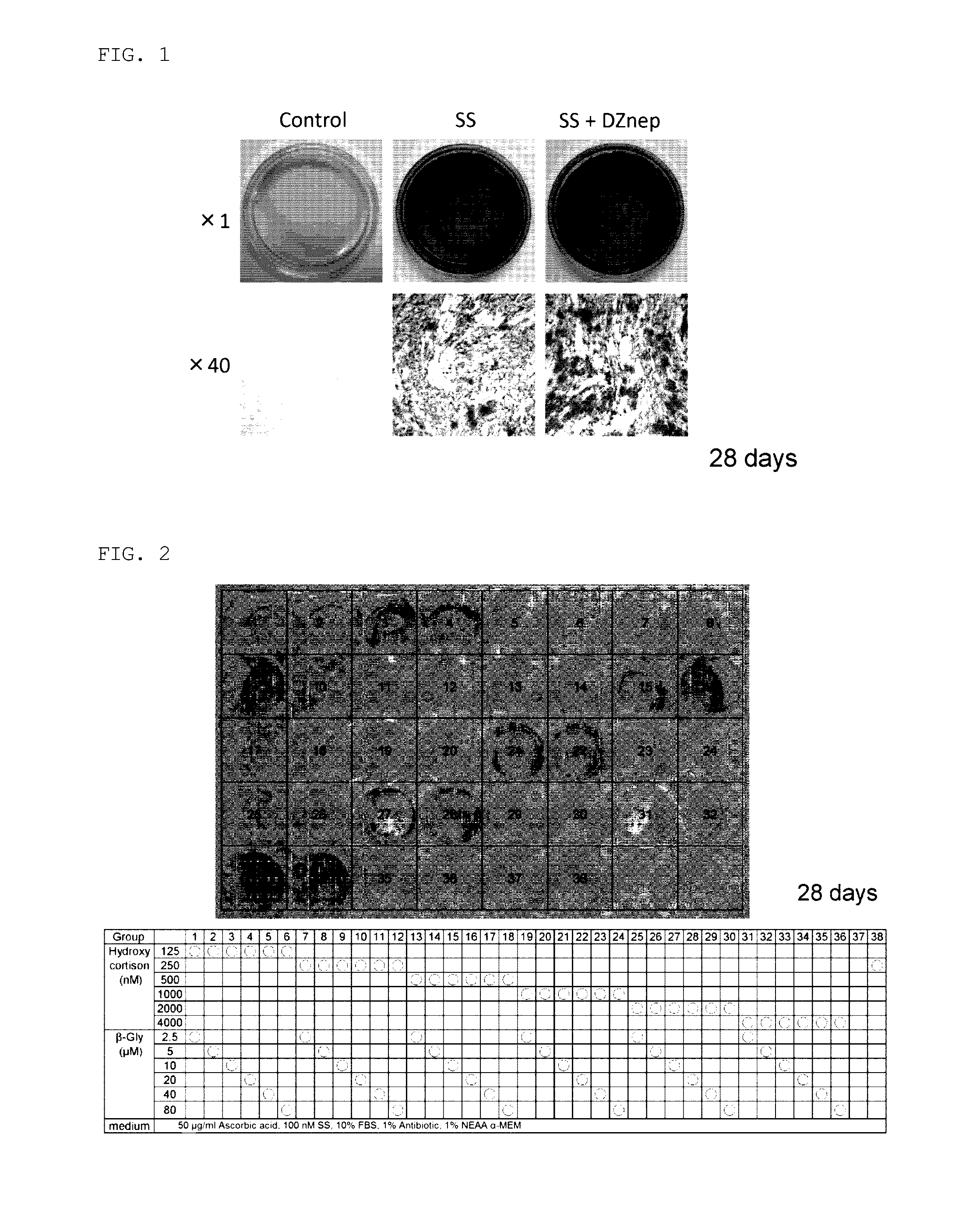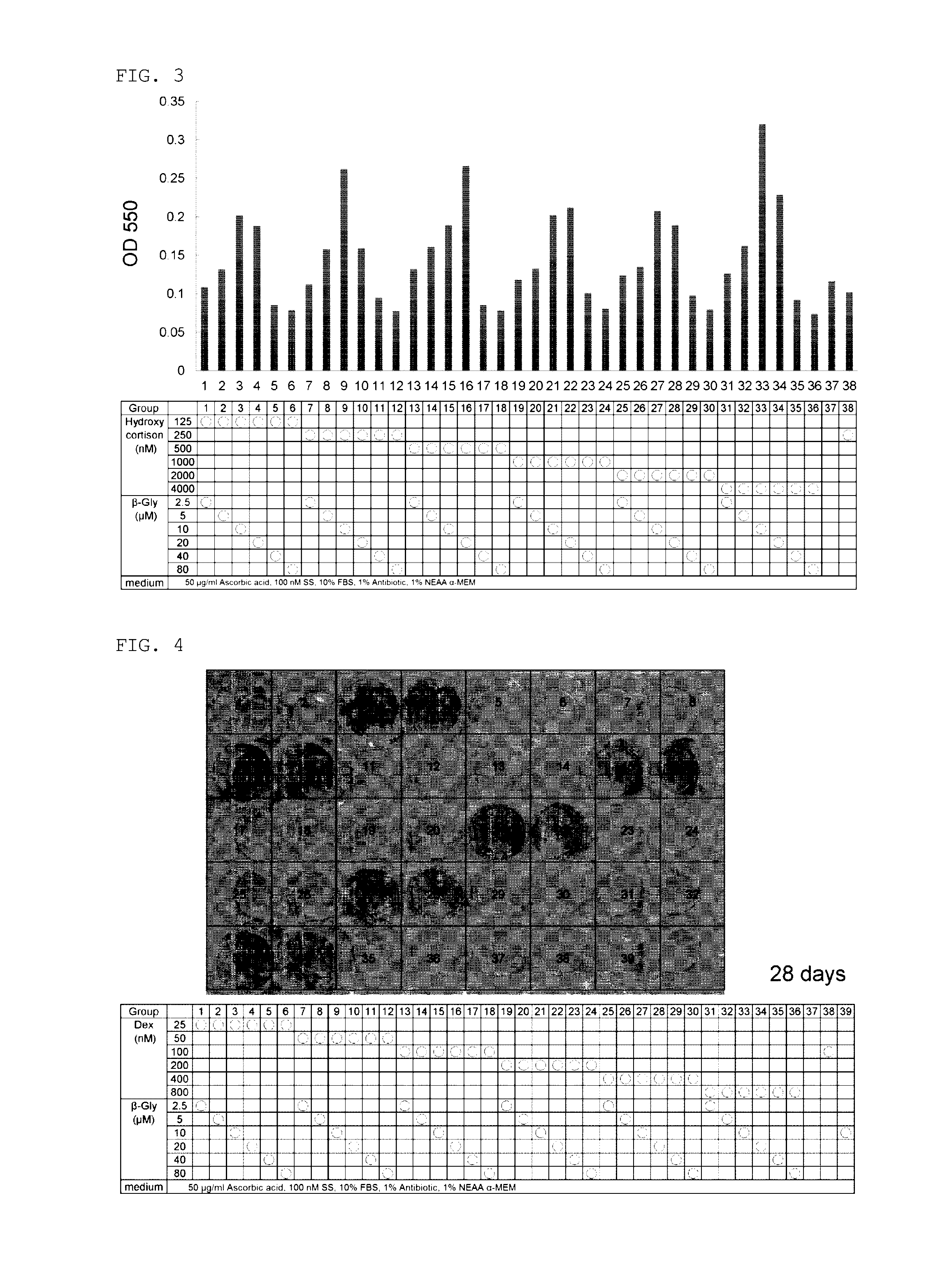Method for preparing osteoblasts and osteoblast inducer
- Summary
- Abstract
- Description
- Claims
- Application Information
AI Technical Summary
Benefits of technology
Problems solved by technology
Method used
Image
Examples
example 1
1-1: Alizarin Red S Staining (FIG. 1)
[0150]A normal human dermal fibroblast (HDF) strain was seeded in a 35-mm culture dish at a concentration of 5×104 cells / well, and cultured under standard conditions in an induction medium to which 100 nM simvastatin (SS), or 100 nM simvastatin (SS) and 1 μM DZNep had been added. The composition of the induction medium is as follows: 50 μg / ml ascorbic acid, 10 mM β-glycerophosphate, 100 nM dexamethasone (all of the concentrations are final concentrations), 10% FBS, 1% antibiotic, 1% NEAA, and α-MEM. The standard conditions refer to 37° C., 5% CO2, and 95% humidified air. The medium was replaced about once every four days, and culture was performed for 28 days. The culture medium was removed by aspiration from the culture dish, and the cells were washed twice with distilled water, followed by fixation with 10% formalin. After washing was performed with sterile distilled water, an Alizarin Red S staining solution was added thereto, followed by stil...
example 2
2-1: Alizarin Red S Staining (FIG. 10)
[0157]A normal human dermal fibroblast (HDF) strain was seeded in a 24-well plate at a concentration of 5×103 cells / well (day 0). On the next day, the culture medium was removed from each well and replaced with fresh medium (500 μl / well). The induction medium was obtained by adding 10% fetal bovine serum (FBS) to Dulbecco's Modified Eagle's Medium (DMEM), 50 μg / ml ascorbic acid, 10 mM β-glycerophosphate, and 100 nM dexamethasone. Further, the small molecular compounds were added as shown in the Figure. “AS” represents atorvastatin, “LS” represents lovastatin, “RS” represents rosuvastatin, “PiS” represents pitavastatin, “SS” represents simvastatin, “PrS” represents pravastatin, and “FSK” represents forskolin. “AS” was purchased from LKT Laboratories (St Paul, USA), “LS” was from Cayman Chemical (Ann Arbor, USA), “RS” was from Cayman Chemical (Ann Arbor, USA), “PiS” was from Cayman Chemical (Ann Arbor, USA), “SS” was from Sigma (St Louis, USA), “P...
PUM
 Login to View More
Login to View More Abstract
Description
Claims
Application Information
 Login to View More
Login to View More - R&D
- Intellectual Property
- Life Sciences
- Materials
- Tech Scout
- Unparalleled Data Quality
- Higher Quality Content
- 60% Fewer Hallucinations
Browse by: Latest US Patents, China's latest patents, Technical Efficacy Thesaurus, Application Domain, Technology Topic, Popular Technical Reports.
© 2025 PatSnap. All rights reserved.Legal|Privacy policy|Modern Slavery Act Transparency Statement|Sitemap|About US| Contact US: help@patsnap.com



